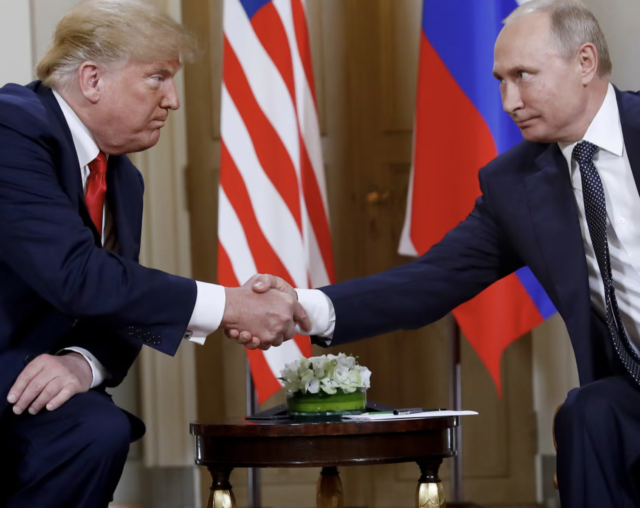A potential peace deal between Donald Trump and Vladimir Putin might seem like a purely geopolitical event, but the ripple effects could reach your wallet—and the housing market—faster than you think.
When global policy shifts, it impacts everything from oil prices to interest rates, inflation, and investor confidence. Those changes can directly influence mortgage rates, construction costs, and even the supply and demand in real estate. Let’s break down the key connections.

1. Peace Talks and Oil Prices
If the Russia–Ukraine conflict moves toward resolution, Russian oil could return to global markets more freely. Increased oil supply typically drives prices down.
Why does that matter for housing? Oil prices impact:
-
Transportation costs for construction materials and consumer goods
-
Inflation levels that the Federal Reserve watches closely
-
Household budgets, leaving more room for housing costs when fuel prices are lower
When inflation drops, the Fed is more likely to cut interest rates, reducing mortgage costs and stimulating housing demand.
2. Inflation and Federal Reserve Policy
War is expensive—and often inflationary. Peace could slow the rise in prices for essentials like steel, aluminum, and lumber, which are heavily used in construction. Lower inflation would give the Fed more room to cut rates.
We’ve already seen hints of this. Recent job market softness and moderating inflation have some experts predicting rate cuts as early as September. If oil prices fall sharply after a peace deal, the Fed could act more aggressively. Lower borrowing costs would benefit both homebuyers and developers.
3. Global Stability and Foreign Investment
Uncertainty keeps investors on the sidelines. Global conflict increases volatility in stock, bond, and currency markets—causing capital to retreat to perceived safe havens like gold, Bitcoin, or U.S. Treasuries.
Peace talks could shift that dynamic. Reduced geopolitical tension often boosts foreign investment in U.S. real estate, especially in larger markets like New York, Miami, and Los Angeles. Increased demand from overseas buyers can push up property values and inject more liquidity into local markets.
4. Construction Costs and Supply Trends
High interest rates and expensive materials have slowed new housing construction to near-record lows after a historic surge in 2023. Many developers hit pause because financing costs doubled and material prices spiked.
A peace deal could ease global supply chain pressures and lower costs for commodities like steel, aluminum, and copper—making new construction more financially viable. For investors, starting projects during a supply shortage can mean delivering new units when competition is low and rents are strong.
5. Trade Policy, Tariffs, and Housing Affordability
Tariffs on imported goods can increase costs for both builders and consumers. If Trump’s negotiations with Russia reduce inflationary pressures from oil and commodities, it could make tariffs less disruptive.
For housing, this means:
-
Lower material costs for builders
-
More affordable new-home pricing
-
Reduced pressure on rents from high construction expenses
6. Employment and Housing Demand
The job market is another major factor. If tariffs, automation, or other economic shifts increase unemployment, fewer people will qualify for mortgages or sign new leases. Peace-driven economic stability could help sustain employment levels, keeping housing demand strong.
However, experts warn that artificial intelligence and shifting manufacturing patterns could reshape the labor market in ways we haven’t fully seen yet. The Fed’s dual mandate—managing inflation and unemployment—means job numbers will remain central to their interest rate decisions.
What It Means for Investors and Homebuyers
A Trump–Putin peace deal could set off a chain reaction:
-
Lower oil prices → reduced inflation
-
Reduced inflation → potential rate cuts
-
Lower rates → higher housing demand and construction activity
-
Increased global stability → more foreign investment in U.S. real estate
For buyers, this could mean a window of opportunity before demand surges. For investors and developers, it could be a chance to start projects in a lower-cost environment and deliver them into a stronger market.
Bottom line: Geopolitical events aren’t just headlines—they’re market movers. Whether or not a peace deal happens, understanding how global policy connects to housing helps you stay ahead of the curve. That’s why I created this guide to navigate real estate deals even during time of inflation.



